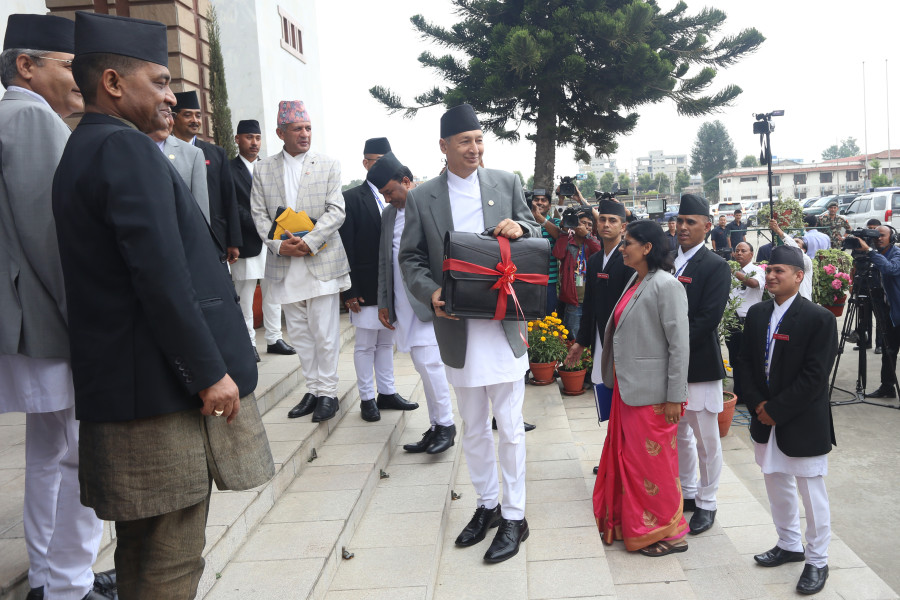National
Allocation of Rs 60 million to parliamentarians for their constituencies draws public ire
The pork barrel spending will cost the state coffers Rs 9.9 billion
Chandan Kumar Mandal
Despite much protest from a section of lawmakers and the public against providing Members of Parliament with millions of rupees and a free hand in spending, Finance Minister Yubaraj Khatiwada bowed to political pressure, increasing the budget for the Local Infrastructure Development Partnership Programme.
The federal budget, presented in Parliament by Khatiwada on Wednesday, provided a 50 percent hike for the programme—from Rs 40 million to Rs 60 million.
The Local Infrastructure Development Partnership Programme, along with its previous incarnations, has long been controversial for providing federal lawmakers with little oversight in spending. Millions of rupees were found to have been misused in the past, when the programme was divided into two separate programmes—the Constituency Infrastructure Special Programme and the Constituency Development Programme.
[Read: Rs1.53 trillion: Ambitious and unrealistic]
Last year, when preparing the budget for the fiscal year 2018-19, Khatiwada had spoken out against the programmes, given their unsavoury history. Khatiwada had planned not to continue with the two programmes, but eventually conceded to political pressure from within the party and the opposition, merging them into one Local Infrastructure Development Partnership Programme.
The programme provides each Member of Parliament with millions of rupees to spend on development programmes in their constituencies, without parliamentary oversight. In the past, the money has been found to have been used to appease voters with populist programmes like building temples and appeasing voters, when the funds should have been spent on infrastructure development.
[Read: Government revises tax structure and changes income tax slab for salary earners]
This year, the finance minister was under pressure to not only continue with the programme but double its budget, even as the public and some lawmakers protested. Many had claimed the funds could be used in a more productive fashion if they were used collectively, instead of scattered among hundreds of parliamentarians.
After Khatiwada’s announcement of the increase in the budget, citizens and public figures took to social media to express their outrage.
Surya Raj Acharya, spokesperson for the Bibeksheel Sajha party, wrote on Twitter: “The Tribhuwan University Teaching Hospital has been receiving Rs600 million annually in government aid. With the amount of Rs9 billion being given to lawmakers, 15 government teaching hospitals could be operated countrywide.”
[Read: The federal budget is out, and the government has disappointed yet again]
This year, lawmakers lobbied to double the budget for the programme, saying that the allotted Rs40 million was insufficient to carry out development works. They had been demanding that the budget be increased to Rs100 million and the constituency development programme be revived.
“If federal parliament lawmakers gets budget in their names then why should not a provincial assembly member? If provincial assembly member gets the fund, then why not local unit representatives? By doing this there will not be any worries for finalising the budget and implementing it. Distribute fund to them and close the bank account!” tweeted one user named Sanjeev (@sanpokh).
The government’s decision to provide Rs60 million to each of the 165 electoral constituencies will cost the state Rs9.9 billion.
[Read: Health budget increased marginally, but experts say it’s insufficient]
Another user (@Namaste_NEPAL__ ) criticised the move saying, “Rs9.9 billion will be stuffed into parliamentarians stomach and then they collect money from taxpayers by hiking petroleum product price for building roads.”
Related to the story:




 16.12°C Kathmandu
16.12°C Kathmandu














